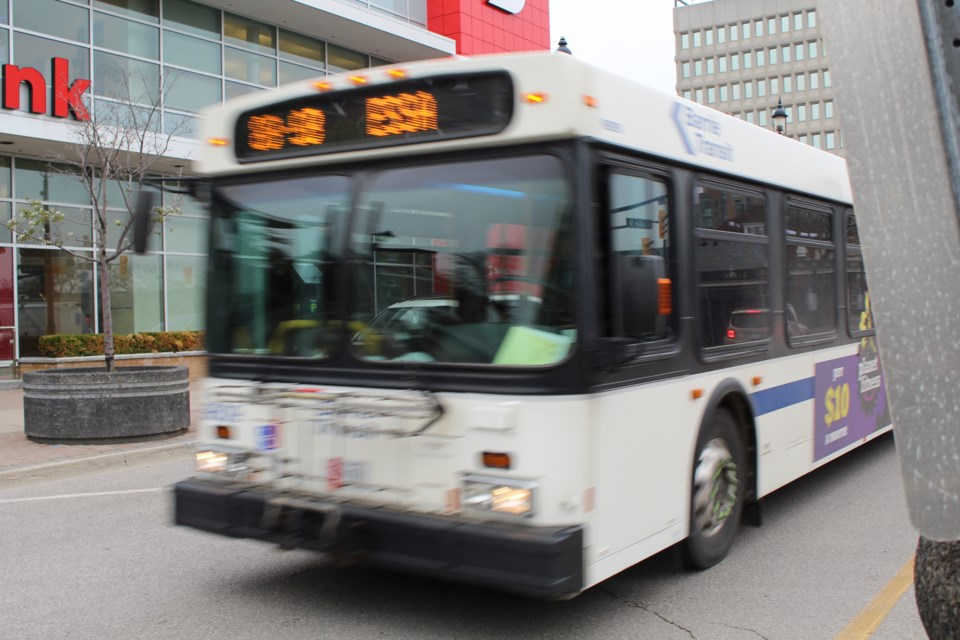Another positive case at Barrie Transit has the union and the City of Barrie asking for their workers to get the vaccine as soon as possible.
There are now seven positive cases among Barrie Transit staff, according to their union, which is up from six reported on Sunday. Affected drivers are isolating at home.
Cory Trew, president and business agent for the Amalgamated Transit Union (ATU) Local 1775 in Barrie, said on Monday there are upwards of 200 employees within Barrie Transit, including approximately 175 drivers and maintenance workers who are represented by the union.
While seven may not be a large number out of 200 workers, Trew still wants protection immediately for the people the union represent.
“We’ve been wanting our workers bumped up to receive the vaccine as soon as possible," Trew told BarrieToday. "I understand they aren’t like a health-care worker and in the thick of it, but they are currently front-line workers.
“We really need them protected," he added.
On April 15, the Simcoe Muskoka District Health Unit declared a workplace outbreak because there could be a link between two of the confirmed cases.
At this time, the new cases have not been linked to the previous cases.
Trew told BarrieToday the health unit has said the cases were coming from outside in the public.
He also said the union and the city have been working together since December to move transit workers up in the vaccination queue.
Brent Forsyth, the city's director of transit and parking strategy, said in an email that the province has identified public transit staff as essential workers and they have been included in Phase 2 of the vaccination.
“The city is supportive of this and have been advocating for this for many months. The city has leveraged its partnerships with both OPTA (Ontario Public Transit Association) and CUTA (Canadian Urban Transit Association) who have been advocating to upper levels of government for prioritization of vaccines to transit workers,” said Forsyth.
“City staff have also raised the importance of this with the health unit," he added.
Neither Forsyth nor Trew could say exactly how the recent outbreak happened, but Trew said there are the obvious ideas.
“Our drivers are in constant contact with a lot of people every day. We have PPE (personal protective equipment) and safety procedures, but they are still on the front line,” Trew said. “It's scary because these workers have families they go home to.
"Many in the public (also) rely on public transit and these workers have to go home to their families," he added. "They need the vaccine.”
The city says all buses are thoroughly cleaned and sanitized after service each day and receive additional midday sanitization to further improve safety measures.
Since the beginning of the pandemic, the city says Barrie Transit has taken extra precautions to keep its employees and riders safe and continues to follow the direction of the health unit. These measures include:
- plexiglass shield around the driver
- at least six feet of space between the driver and the first seat on the bus
- enhanced cleaning and disinfecting of vehicles
- requirement for masks in public areas
- hand sanitizers on all vehicles
- capacity limitations to support physical distancing
- active screening of all employees completed on a daily basis
- protocols in place that eliminates the requirement for physical contact between drivers and riders
Barrie Transit staff wear a mask or face covering when working in the public areas of the indoor public space unless the staff member is within or behind a physical barrier or is in an area of the premises that is not designated for public access.
The city also says the drivers do not have to wear masks as they are separated from the public by plexiglass shields installed on buses. They do need to wear masks if they exit the driver seat/plexiglass area to secure a wheelchair/mobility device or enter the public area of the vehicle.




